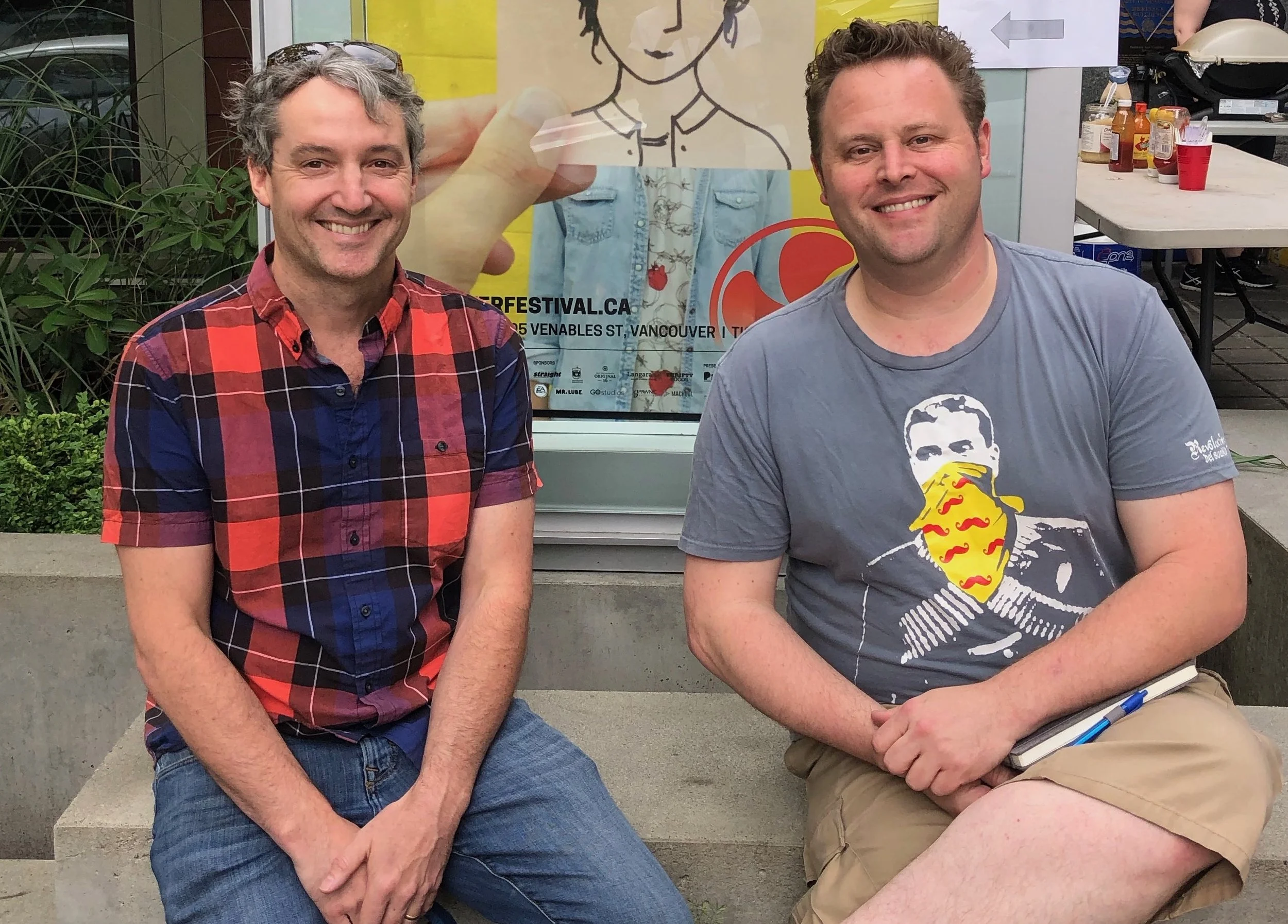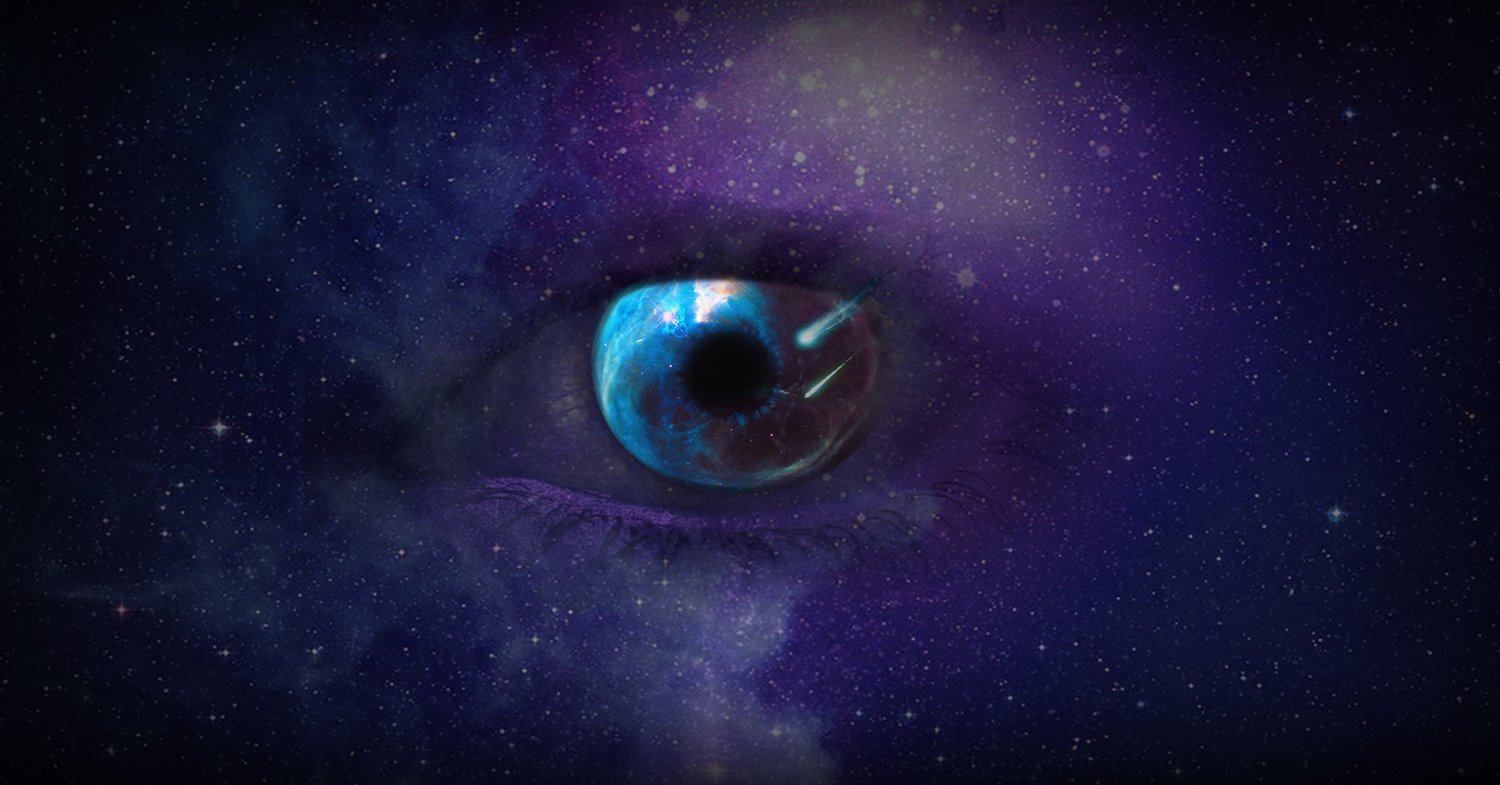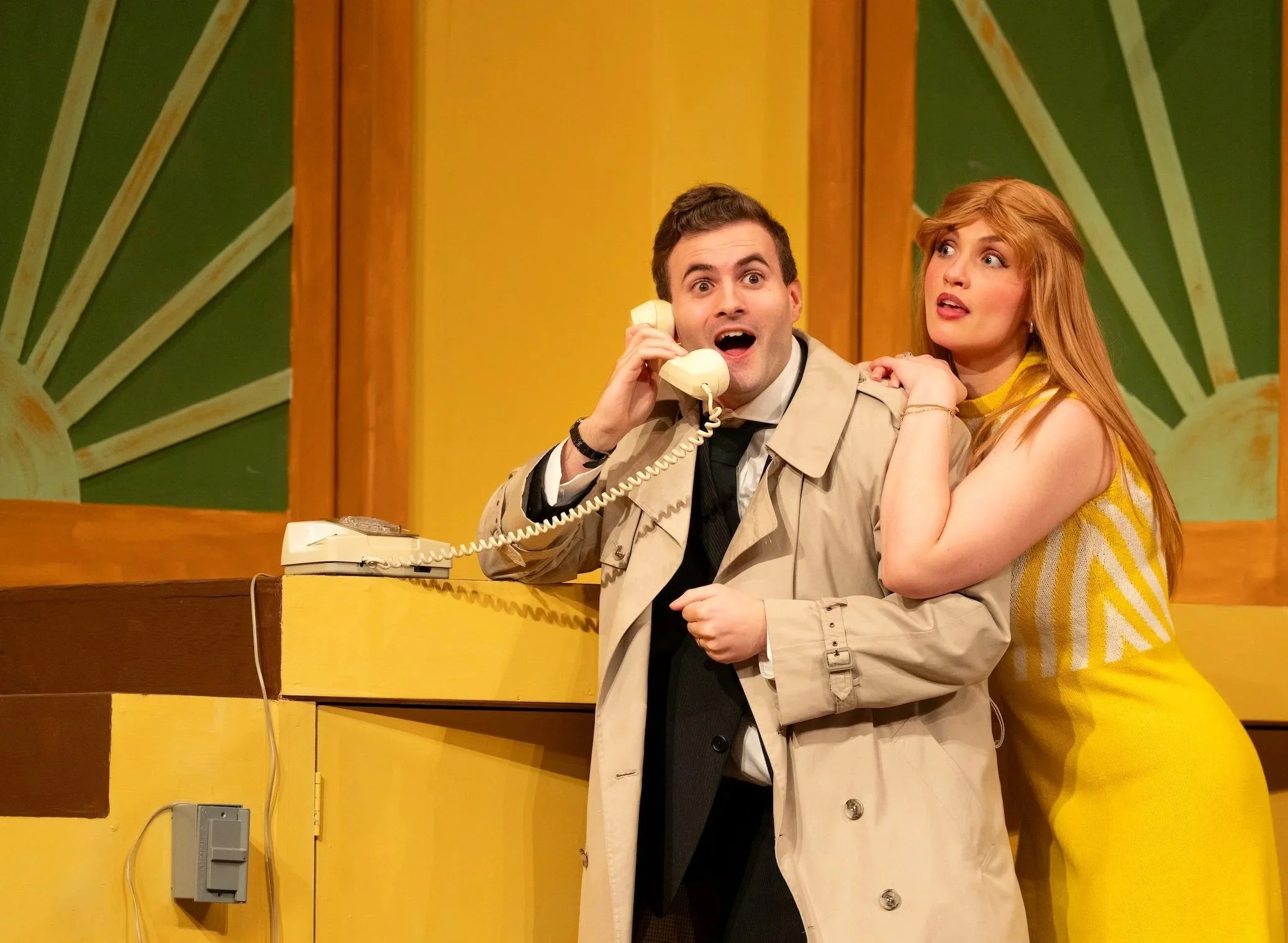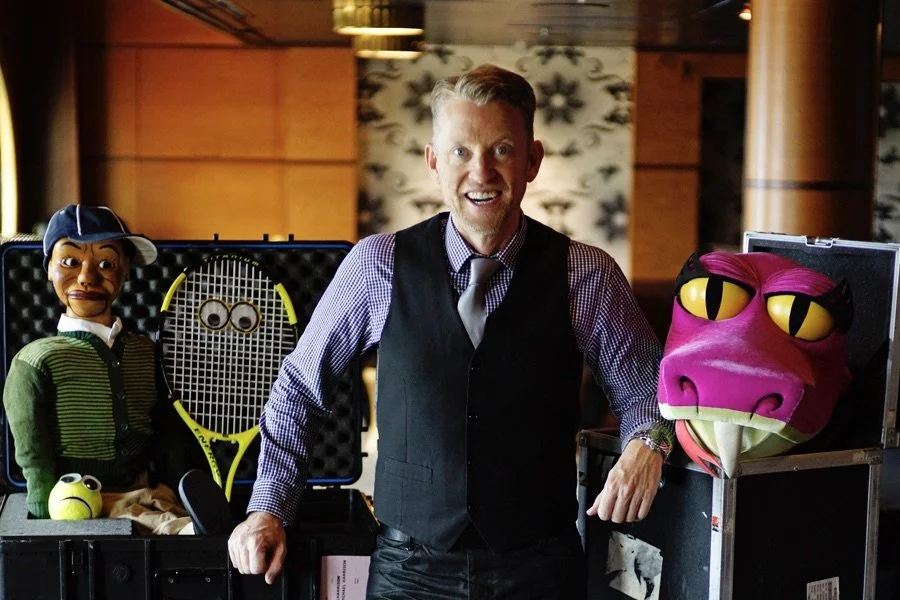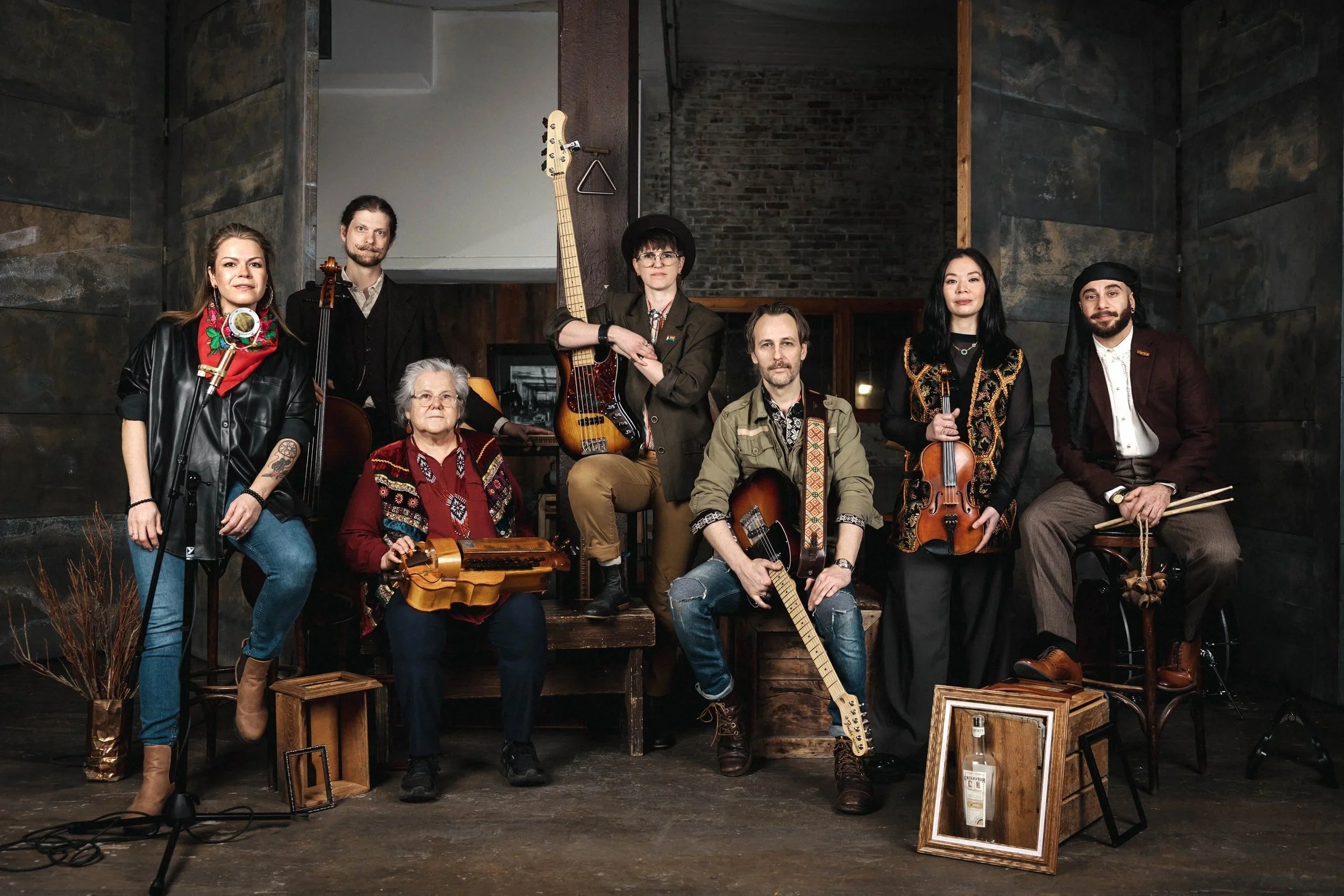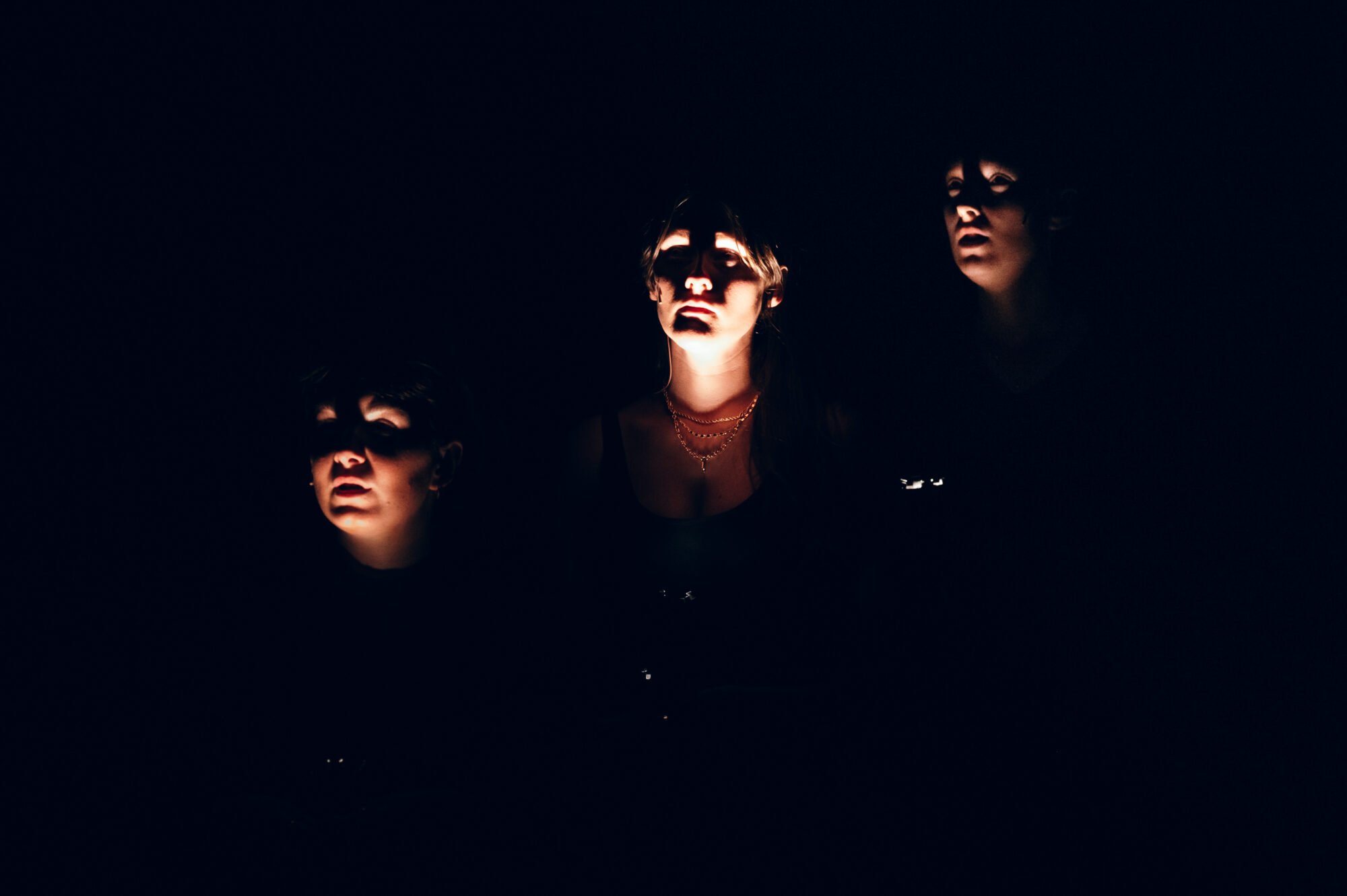Daniel Martin leaves his role at Upintheair Theatre amid a blaze of experimentation at The Array
After more than two decades of boundary-pushing work and nurturing emerging artists, the company enters a new chapter
Friends and Upintheair Theatre founders Daniel Martin and David Mott are coming to the end of an era together.
Upintheair Theatre presents The Array: Beyond the Knowledge of Humankind from December 1 to 3 at the What Lab (1814 Pandora Street)
DANIEL MARTIN, ONE half of the founding duo of Upintheair Theatre, finds it fitting that he’ll be signing off from the company with a creation for the edgy, innovative The Array this week.
“Part of me wanted to maybe hang around till the [rEvolver] Festival next year and get to say goodbye on a big soldout Historic Stage,” he reflects over the phone with his Upintheair partner of more than 20 years, David Mott. “But then, the other part of me was like, ‘No! I want to go out in a blaze of experimentation in a warehouse!’ It feels way more appropriate.”
Mott and Martin’s final creative collaboration, on a program with works by Art Action Earwig and Wake of Vultures, will be based around the cosmic-inspired notion of Beyond the Knowledge of Humankind. The three-part evening of experimental theatre will take place in the East Side warehouse space What Lab. The Array was Upintheair’s first foray into commissioning work—after years of presenting and producing.
“We wanted to create something that had that kind of youthful, exciting, underground energy, and we just decided we’re going to spend all the money on the artists,” Martin reflects, “commissioning performances in funky, weird spaces, and the shows are going to be short and experimental.”
Mott adds that the series, launched in 2019, grew out of the duo’s shared love of science news. “Daniel and I are physics nerds—we get excited about things like the James Webb telescope. We get excited about the history of exploration about astronomy,” he says. “We wanted to say, ‘Hey, let's make some work about things that are happening beyond what we know.’”
After the latest installment of The Array (the duo is collaborating with their old colleague and friend Thrasso Petras on their performance), Martin will be moving on. He’s ready to explore new frontiers, he says, and is leaving on good terms. For the past year or more, he and Mott have been preparing: Mott will move into a more artistic-mentorship leadership role, while the company is searching for a new general manager.
“I’ve read about how nonprofit organizations have lifespans—that the nonprofit itself is its own entity, and that entity needs to grow and it needs to change,” says Mott. “It’ll mean that the company will have a much bigger, longer life than we intended it to as two 20-year-old actors.”
The company had its beginnings around the time the pair started writing their first Fringe play together in 1999. (Prior to that, Martin had pursued his Masters in Sociology in New Zealand—returning home to study acting.)
“I wanted to become an indie film star and Dave convinced me we should do theatre,” Martin recalls.
“I’m sorry about that, Dan!” Mott says with a laugh.
As the story goes, Mott came up with the name Upintheair: “We were young artists and it was about the uncertainty of passing through life and not necessarily knowing what your path might be, and we felt like the company might be able to give us that definition,” he recalls. “But it was also inspirational.”
“The thing you said that actually convinced me about the name was that it was a value for us to take when we were performing onstage,” Martin tells Mott, “to have that value of going onstage and finding the newness—finding the invention, finding the discovering that was happening in the moment.”
In those early years, Upintheair devoted itself mostly to creation—Fringe hits like Wedgie, Pyropornomania, and Men of the World.
Daniel Martin
Those early experiences fed a lot of the work Upintheair does today. Experimental projects included the Fringe fest’s Wagabondi Ho!, set in a 1973 Dodge X-Plorer van for audiences of four. Or think of 2007’s 120BPM, centred on the 1990s rave scene and staged in a secret warehouse. (Cast members would meet you on a street corner and take you to the hidden spot.) Despite “terrible reviews”, the latter show sold out its run, the pair reports.
“It really taught us at that if the audience is only professional theatre makers and critics, then you’re choosing that to be your audience—but you can also decide you’re making work for people who don’t necessarily go to the theatre or that come from a certain background or lived experience,” Martin reflects. “And that sometimes doesn't line up with what we’re taught in school makes a perfect play. It was a fundamental lesson for me about why you make theatre and who you make it for.”
Early on with Upintheair, the duo found itself expanding its reach to support other emerging artists—especially through projects like the Walking Fish Festival, which ran from 2003 to 2012 and was one of this city’s first emerging artists’ performance fests, connecting playwrights, performers, and directors to create original, short-form theatre. It evolved into Neanderthal Arts Festival (in partnership with Left Right Minds) and then the rEvolver Festival, which now runs each May at The Cultch and spotlights adventurous new performance by emerging artists. (Resident curators help put together the program.)
The graphic for The Array: Beyond the Knowledge of Humankind, part of the commissioning series inspired by science, the cosmos, and the unknown.
“We started to realize that we had a capacity as producers, and not only a willingness but an aptitude for that work,” explains Martin. “We started to see where there were real gaps of opportunity for young artists, and being slightly arrogant and fearless, we thought, ‘Why don't we fill those gaps, if no one else is going to?’ We were open to shelving our own egos and saying, ‘Let’s work for other people as well, and let’s build community’ – that’s something we’ve been able to hold as a value since early on.”
Mott says the duo has often joked over the years that life would have been so much easier if a company like theirs had been around to help them get their work produced when they were first starting out.
And yet here they are, still pushing the theatrical form and putting themselves “up in the air” again—creating a short work in a compressed amount of time for The Array’s warehouse showings this week. (The duo has been working on their part of the evening with Thrasso Petras, who was involved in the first Walking Fish fest and directed their last Fringe show in 2008.) “Our piece really is about transcendence and the human need to push ourselves into the inexplicable, and go into those places we don't understand and say ‘What’s this about?’” begins Martin.
“It lives in the transcendent, and moving beyond what you know and into the place of the unknown,” adds Mott. “There’s beauty and safety at the edge, but you have to move beyond it to be a human being.”
And so it is for Martin, pushing into the unknown after more than two decades of creation and producing. He’ll be watching from close by, he says, just a phone call away as Upintheair diversifies and brings in new voices.
“I think, having weathered the pandemic and looking to the future, this is the right moment for Upintheair to bring in some fresh ideas and renewed energy,” he wrote in an announcement on the Upintheair site this month. “While we are just putting out this announcement now, Dave, the board and I have been working on a transition plan for a while. It’s an exciting time for the company with a real opportunity for growth and renewal.”
He finds himself reaching for that up-in-the-air feeling again, even as the company he started with his friend is plotting out a firmer future. As Mott jokes: “We’ve often joked that if we made another theatre company, we’d call it Rock Solid.”


